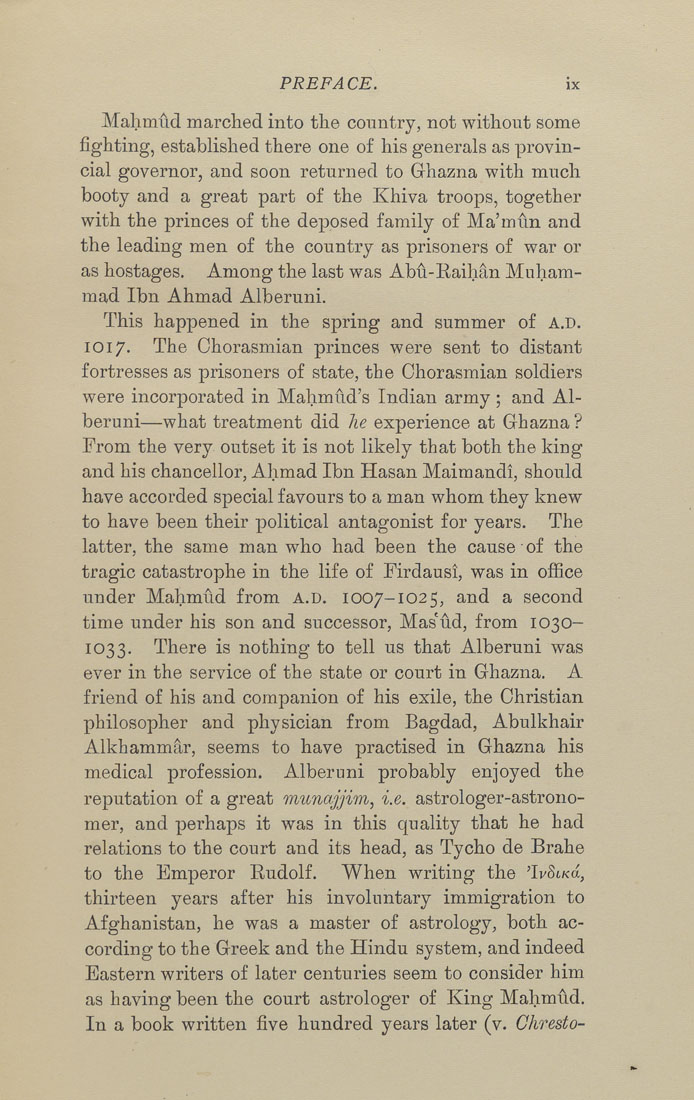Bīrūnī, Muḥammad ibn Aḥmad, Alberuni's India (v. 1)
(London : Kegan Paul, Trench, Trübner & Co., 1910.)
|
||
|
|
|
|
| Page ix |

PREFACE. ix Mahmud marched into the country, not without some fighting, established there one of his generals as provin¬ cial governor, and soon returned to Ghazna with much booty and a great part of the Khiva troops, together with the princes of the deposed family of Ma'mun and the leading men of the country as prisoners of war or as hostages. Among the last was Abu-Eaihan Muham¬ mad Ibn Ahmad Alberuni. This happened in the spring and summer of A.d. 1017. The Chorasmian princes were sent to distant fortresses as prisoners of state, the Chorasmian soldiers were incorporated in Mahmud's Indian army; and Al¬ beruni—what treatment did he experience at Ghazna ? From the very outset it is not likely that both the king and his chancellor, Ahmad Ibn Hasan Maimandi, should have accorded special favours to a man whom they knew to have been their political antagonist for years. The latter, the same man who had been the cause of the tragic catastrophe in the life of Firdausi, was in office under Mahmud from A.D. 1007-1025, and a second time under his son and successor, Mas'ud, from 1030- 1033. There is nothing to tell us that Alberuni was ever in the service of the state or court in Ghazna. A friend of his and companion of his exile, the Christian philosopher and physician from Bagdad, Abulkhair Alkhammar, seems to have practised in Ghazna his medical profession. Alberuni probably enjoyed the reputation of a great munajjim, i.e. astrologer-astrono¬ mer, and perhaps it was in this quality that he had relations to the court and its head, as Tycho de Brahe to the Emperor Eudolf. When writing the 'IvStKa, thirteen years after his involuntary immigration to Afghanistan, he was a master of astrology, both ac¬ cording to the Greek and the Hindu system, and indeed Eastern writers of later centuries seem to consider him as having been the court astrologer of King Mahmud. In a book written five hundred years later (v. Chresto- |
| Page ix |







